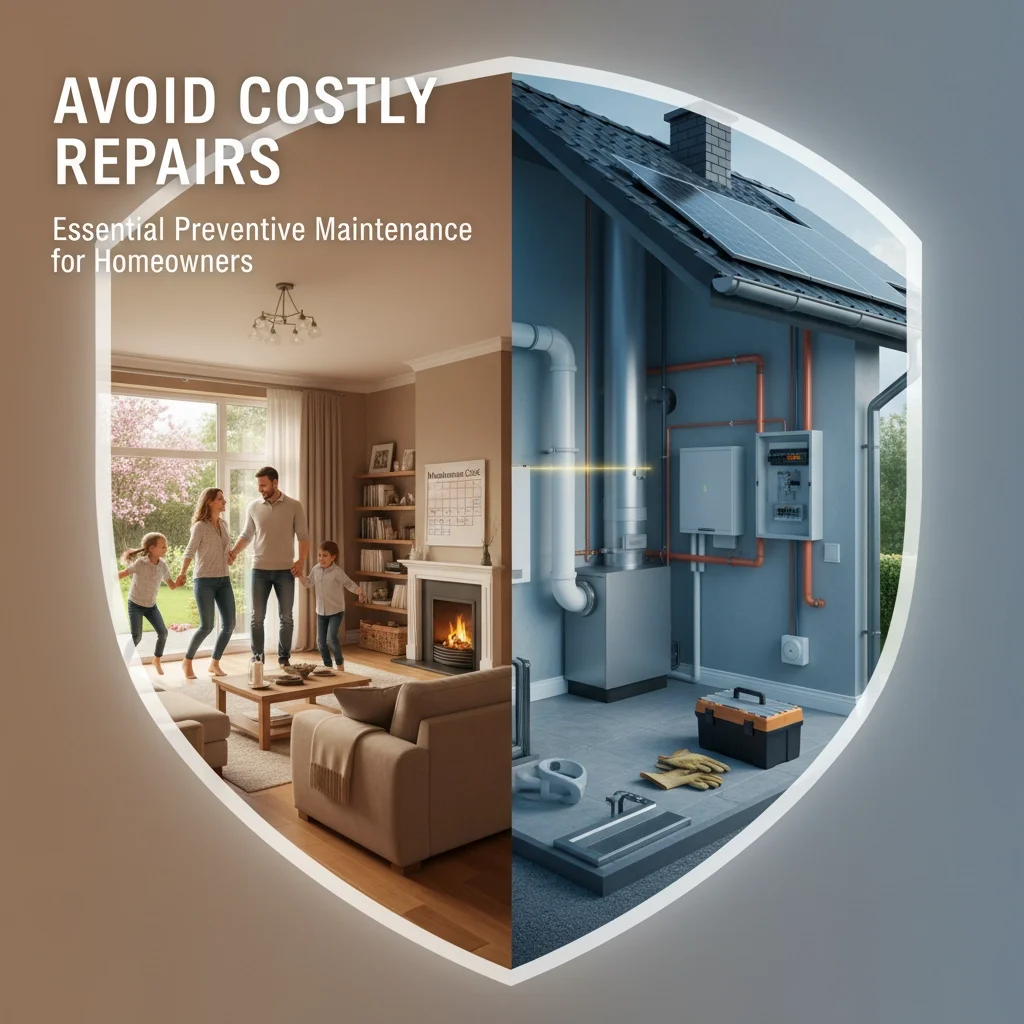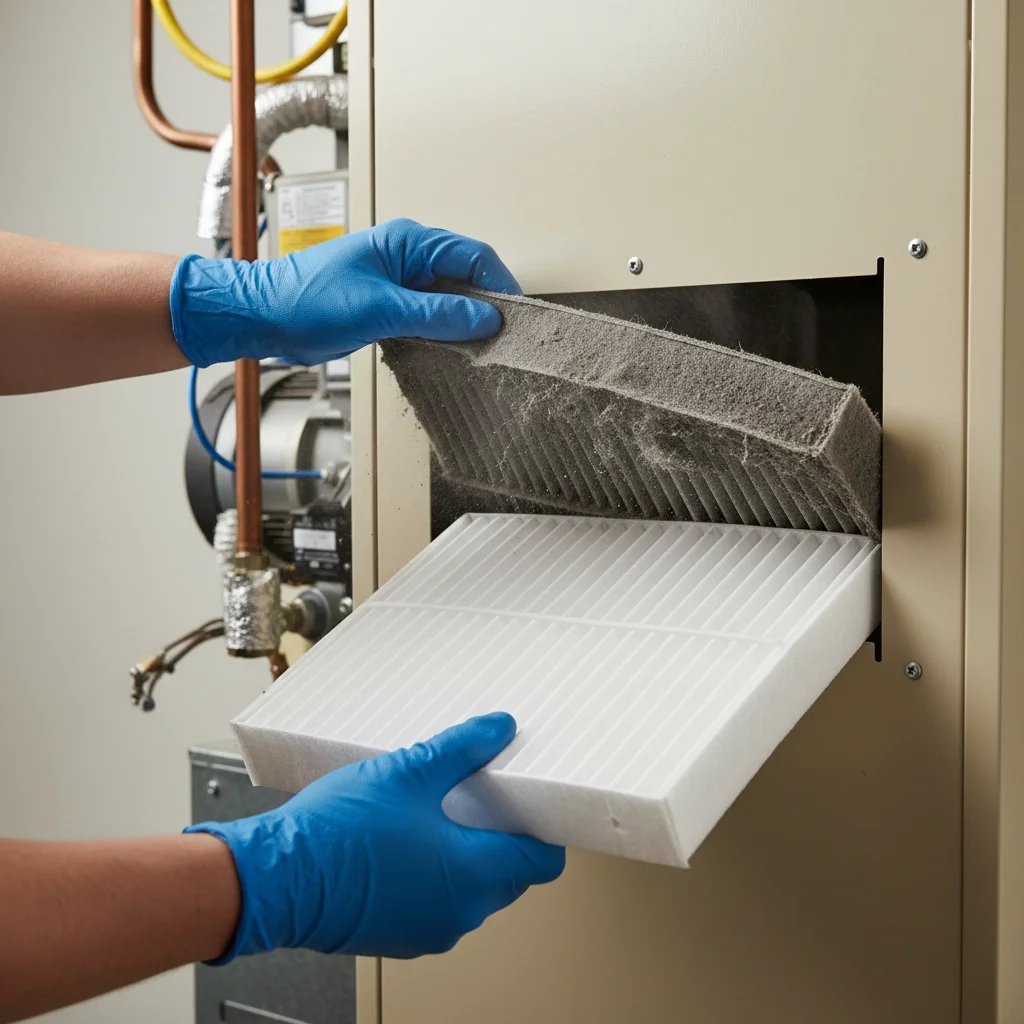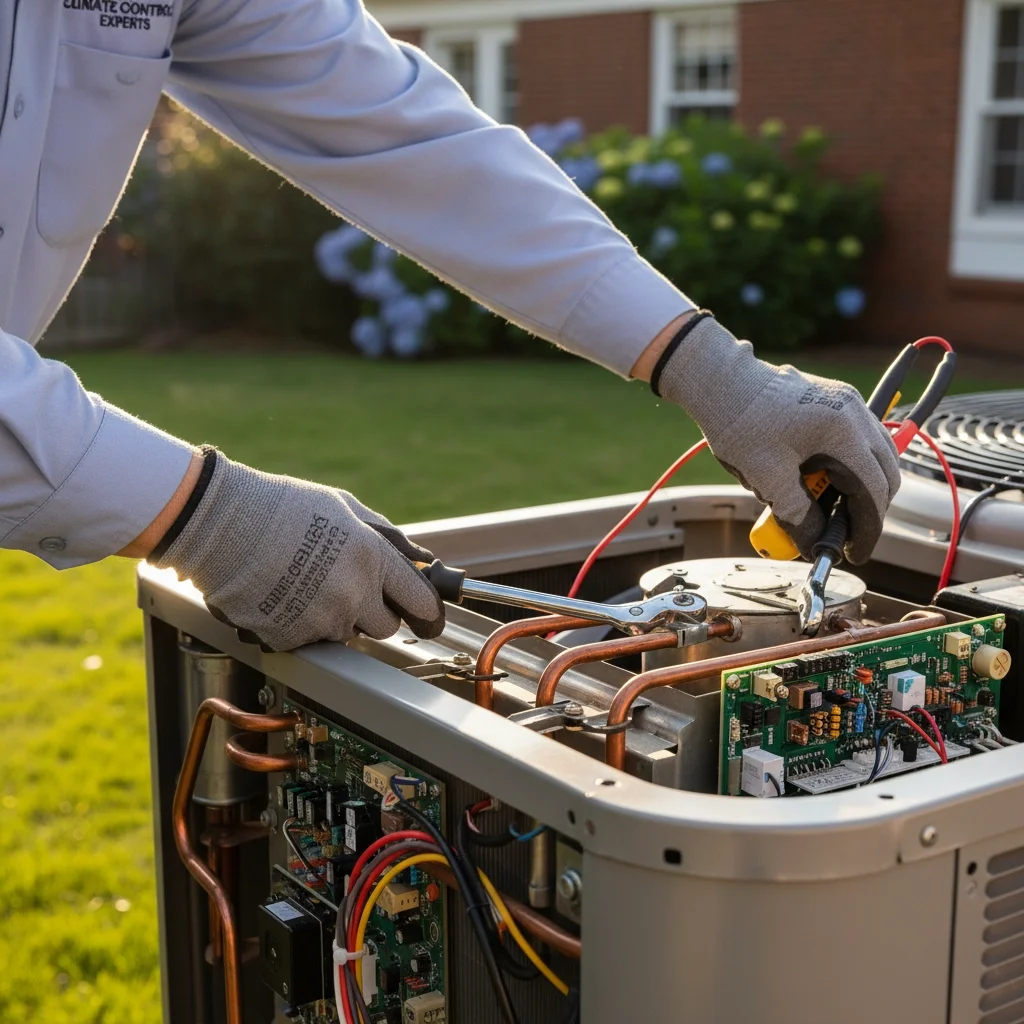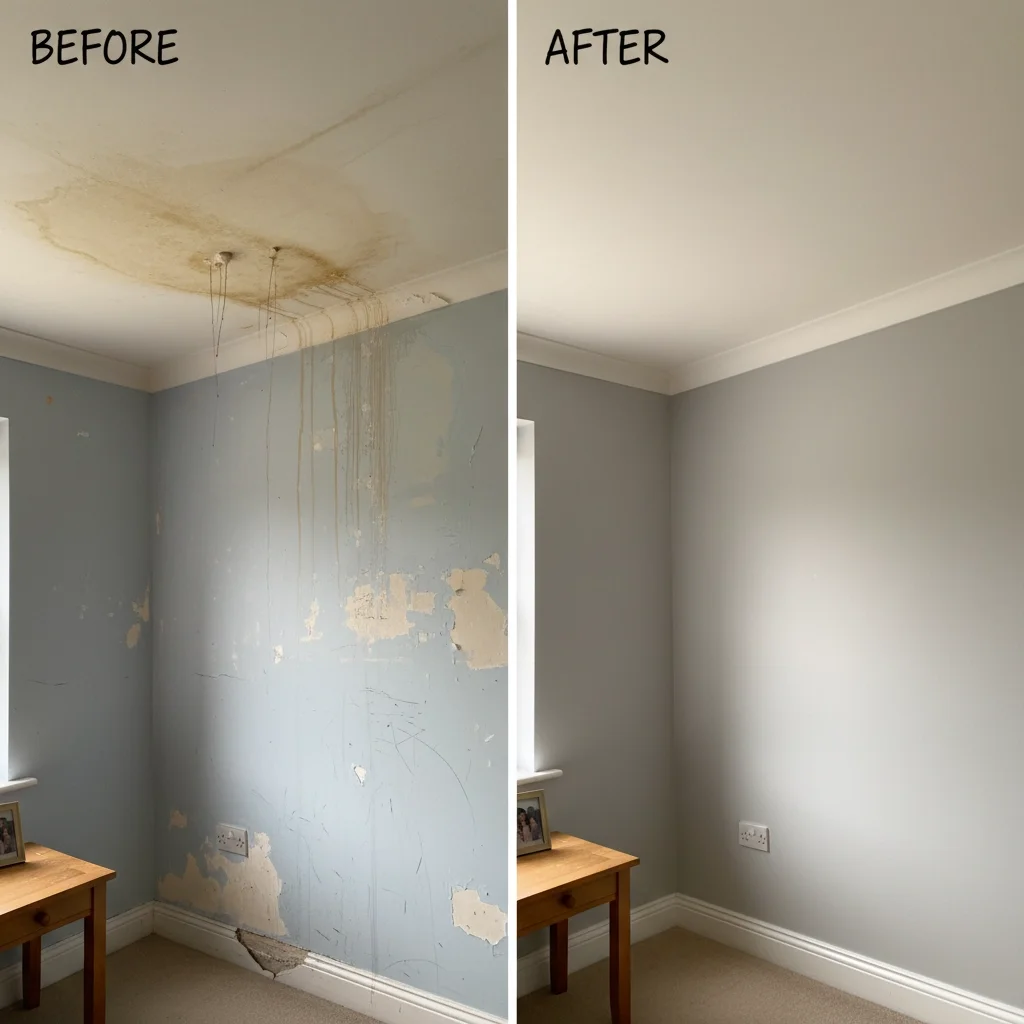Avoid Costly Repairs
Your home is likely your biggest investment, so protecting it should be a top priority. The good news? A little preventive maintenance goes a long way toward avoiding those expensive surprise repairs that can hit your wallet hard.
Think of home maintenance like taking care of your car. You wouldn't skip oil changes and expect your engine to run smoothly forever, right? The same principle applies to your house. Regular upkeep keeps everything running smoothly and catches small problems before they turn into major headaches.
Why Preventive Maintenance Actually Saves You Money
Here's the thing about home repairs: they're almost always more expensive when they're emergencies. A small roof leak you fix today might cost a few hundred dollars. Wait until it damages your ceiling, floors, and furniture? Now you're looking at thousands.
Preventive maintenance also keeps your home's value up. When systems are well-maintained, they last longer and work more efficiently. Your energy bills stay lower, your appliances don't break down as often, and potential buyers see a well-cared-for property if you ever decide to sell.
Plus, there's the peace of mind factor. Nothing ruins a weekend quite like a burst pipe or a broken furnace in the middle of winter.
Monthly Tasks That Make a Big Difference
The key to successful home maintenance is making it routine. These monthly checks only take about an hour but can prevent major problems:
Check Your HVAC Filter
This is probably the easiest and most important thing you can do. A dirty filter makes your system work harder, driving up energy costs and shortening its lifespan. Most filters need changing every 1-3 months depending on your home and family size.
Test Smoke and Carbon Monoxide Detectors
Hit that test button once a month. If the chirp is weak or non-existent, change the batteries immediately. This simple task could literally save your life.
Look for Water Leaks
Walk around your house and check under sinks, around toilets, and near your water heater. Look for drips, puddles, or water stains. Catching a leak early can save you from major water damage.
Inspect Electrical Cords and Outlets
Look for frayed cords, burn marks around outlets, or any outlets that feel warm. Don't overload outlets with too many devices: it's a fire hazard.
Seasonal Maintenance That Prevents Big Problems
Different seasons bring different challenges for your home. Here's how to stay ahead of them:
Every Three Months:
Clean your gutters and check for proper drainage
Inspect your roof from the ground (look for missing or damaged shingles)
Trim tree branches that are too close to your house or power lines
Spring Prep:
After winter's done its damage, it's time to assess and repair. Check your lawn and garden areas, reseed grass once the frost danger passes, and clear any debris that accumulated over the winter months.
Winter Preparation:
Before the cold hits, insulate any pipes in areas prone to freezing (like basements, crawl spaces, or exterior walls). Make sure your heating system is ready to go, and consider having it inspected if it's been a while.
Your Annual Maintenance Checklist
Once a year, it's time for the big-ticket items. These tasks require more time and sometimes professional help, but they're crucial for preventing expensive repairs:
Roof and Exterior Care
Have a professional inspect your roof, or do it yourself if you're comfortable with ladders. Look for missing shingles, damaged flashing, or signs of wear. Check your siding for damage and inspect your foundation for cracks.
Don't forget about your deck or patio: clean and seal wood surfaces, and touch up exterior paint where needed.
HVAC System Service
Schedule a professional inspection and cleaning for your heating and cooling system. This typically costs $100-200 but can prevent much more expensive breakdowns. A well-maintained system also runs more efficiently.
Water Heater Maintenance
Flush your water heater annually to remove sediment buildup. If you have hard water, do this twice a year. This simple task improves energy efficiency and can extend your water heater's life by several years.
Plumbing System Check
Inspect water supply lines to appliances like your washing machine and dishwasher. Test shutoff valves to make sure they work properly. Check that pipe insulation is intact, especially in cold areas of your home.
Interior Inspections
Look at walls and ceilings for stains or peeling paint that might indicate hidden leaks. Check your attic insulation and inspect basement or crawl space insulation and moisture barriers.
Pest Prevention
Have your home inspected for termites, especially if you live in an area where they're common. Check and replace weatherstripping around doors and windows, and re-caulk areas where needed.
Focus on These Critical Systems
While everything in your home needs attention, some systems deserve extra focus because they're expensive to replace and can cause major damage when they fail:
Your HVAC System
This is often the most expensive system in your home to replace. Regular filter changes and annual professional maintenance can extend its life significantly and keep your energy bills reasonable.
Roof and Gutters
Water damage is one of the costliest problems homeowners face. Keeping your roof and gutters in good shape is your first line of defense against expensive water damage repairs.
Water Heater
A failed water heater doesn't just mean cold showers: it can mean flooding and water damage. Regular maintenance is cheap insurance against a big mess.
Staying Organized and On Track
The best maintenance plan is one you'll actually follow. Here's how to make it manageable:
Create a Simple Schedule
Write down what needs to be done monthly, seasonally, and annually. Put reminders in your phone or mark your calendar. Breaking tasks into smaller chunks makes them feel less overwhelming.
Keep Basic Tools Handy
You don't need a professional workshop, but having basic tools available makes routine maintenance easier. A good starter kit includes screwdrivers, a hammer, pliers, a level, tape measure, flashlight, and a drill with basic bits.
Plan and Budget Ahead
If you know your roof will need replacement in a few years, start budgeting for it now. Planning ahead for major expenses makes them much more manageable.
Know When to Call Professionals
While many maintenance tasks are DIY-friendly, some require professional expertise. Don't risk injury or making a problem worse by tackling something beyond your skill level.
The Bottom Line
Regular home maintenance isn't the most exciting way to spend your time, but it's one of the smartest investments you can make. The cost of routine maintenance is minimal compared to major repairs or replacements.
Think of it this way: spending a few hundred dollars annually on maintenance can save you thousands in emergency repairs. Plus, you'll have a more comfortable, efficient home and the peace of mind that comes with staying ahead of problems.
At Liberty Service Holdings Property Solutions, we understand that maintaining a property: whether you live in it or rent it out: can feel overwhelming. That's why we help property owners stay on top of maintenance and address issues before they become costly problems.
The key is to start somewhere. Pick a few tasks from this list and make them part of your routine. Once those become habits, add a few more. Your future self (and your bank account) will thank you.




